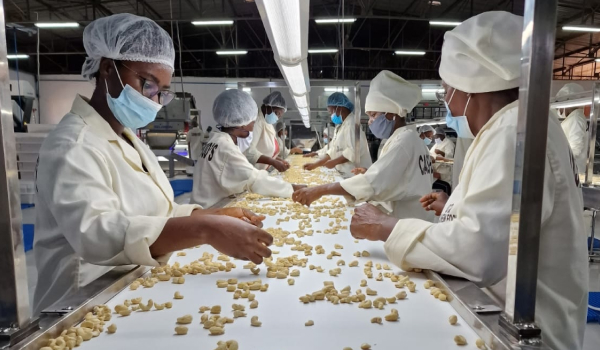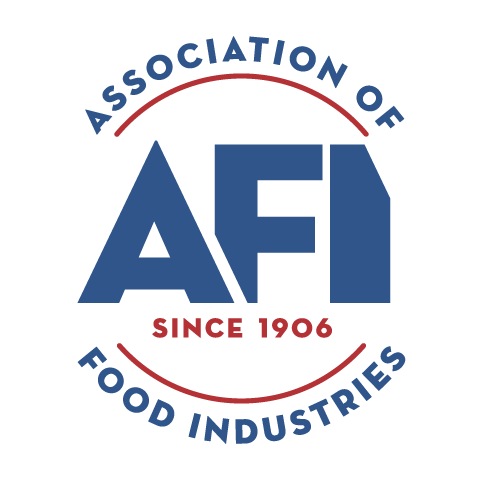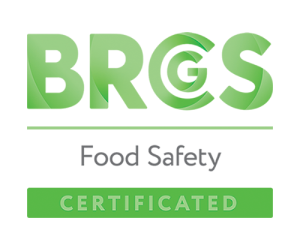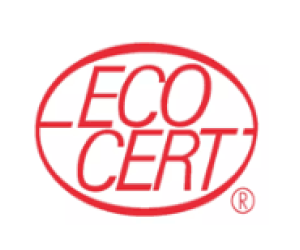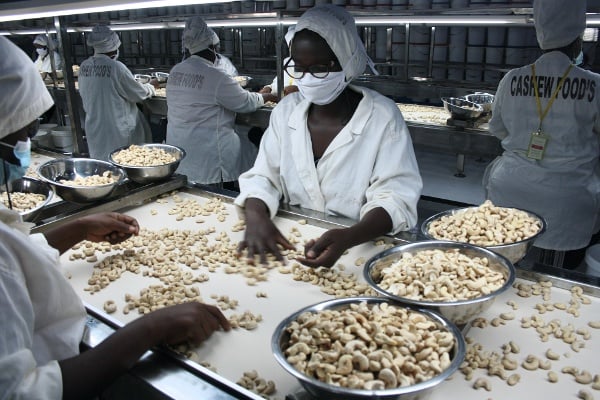Food safety and quality have been central to human trade and health for centuries. From Ancient Greece, where inspectors verified the purity of wine [1], to today’s global standards for traceability and hygiene, regulation has evolved to protect consumers and build trust across borders.
The Advantages of Adhering to Food Quality Standards: A Pathway to Safety, Quality, and Consumer Trust
The implementation of international food quality and safety standards carries extensive advantages across public health, trade, internal operations, and supply chain management [2].
These standards, such as those set by the Codex Alimentarius Commission [3], ISO 22000, and BRCGS, promote transparency, accountability, and continuous improvement across the value chain, and are generally found to yield overwhelmingly positive impacts [2].
However, compliance with internationally recognised food safety and quality standards is not merely a regulatory box to tick — it is a strategic investment that reduces risk, unlocks markets, and creates measurable value across the cashew value chain.
Key advantages of adhering to food quality standards include:
1. Protecting Public Health and Minimising Disease Burden
The primary objective of food safety standards is to protect consumers from health risks associated with unsafe food [3].
Ensuring food safety is therefore a fundamental prerequisite for achieving food security and healthy diets, as unsafe food represents a significant, measurable threat to human health worldwide — contributing to substantial levels of morbidity and mortality [3; 4; 5; 6).
Preventing Illness and Death
Standards ensure that food is safe, of good quality, and suitable for consumption [3; 7]. Unsafe food, contaminated with harmful levels of substances such as bacteria, viruses, parasites, or chemicals, can cause acute or chronic illnesses, including more than 200 diseases, which can lead to permanent disability or death [5; 6].
Reducing Disease Burden
Annually, approximately 600 million people (almost 1 in 10 globally) fall ill after eating contaminated food [3; 4; 6]. This results in a global burden of 33 million Disability-Adjusted Life Years (DALYs) and 420,000 annual deaths due to Foodborne Diseases (FBDs) [4; 5; 6; 17].
In sub-Saharan Africa (SSA), improving food safety helps lessen the burden on health care systems and reduces absenteeism from work and school due to illness [3].
Reducing Societal Costs
The consumption of unsafe food in low- and middle-income countries (LMICs) is linked to an annual estimated cost of USD 110 billion in productivity losses and medical treatment costs [6], and human illnesses due to unsafe food are estimated to cause yearly productivity losses equating to USD 95 billion for LMICs [4].
In sub-Saharan Africa (SSA), the annual human capital or productivity loss associated with foodborne illness is estimated to be about USD 16.7 billion [8]. By preventing illness, standards reduce these societal and economic costs [9].
Protecting Vulnerable Populations
The heaviest burden of foodborne disease falls disproportionately on children under five years old, who account for 40% of the disease burden and approximately 125,000 to 143,000 annual fatalities [3; 4; 5].
Standards are also relevant to vulnerable groups like older adults, who are more susceptible to foodborne illnesses due to weakened immune systems, necessitating targeted food safety education and potential regulation [10].
Addressing Specific High-Risk Hazards
Adherence to standards targets the contaminants that pose the greatest risk. For instance, biological contamination and allergens account for 76% of all Food & Beverages (F&B) recalls in the US, and 96% of the most severe Class I recalls [7].
Specific severe biological contaminants, such as Listeria monocytogenes and Salmonella serovars, are not allowed at any level in food products or processing areas due to their known capacity to cause illness and death, and together they resulted in 40% of all F&B recalls over a 20-year period [7].
Standards help organisations maintain a good agreement with legal requirements and food safety regulations [2]. The implementation of systems like ISO 22000 ensures continuous evaluation and updating of the food safety management system [11].
2. Facilitating Trade and Economic Growth
International standards, such as those set by the Codex Alimentarius Commission (CAC), are crucial for enabling global commerce, while protecting consumers [3].
Harmonisation and Trade Promotion
Codex Alimentarius is recognised as the single most important international reference point for food standards [3]. Its standards are used as a benchmark in international trade agreements [3; 8].
International standards help promote trade by reducing the administrative and cost complexities associated with navigating differing national standards [12; 13].
Market Access and Competitiveness
Alignment with international standards, particularly for developing countries, is essential to gain or maintain market access and export opportunities [3; 4; 6].
Standards can promote export performance [12] and encourage economic growth [13].
Reducing Barriers
The widespread adoption of international standards can reduce the burden on exporters by decreasing the need to set up different production processes for each market [13; 18].
This mitigation of negative effects is particularly observed when national standards are de facto harmonised with international standards [13; 18].
Improving Reputation
Certification and adherence to international standards helps organisations gain a higher status and reputation in the market [2], i.e. standards are a mark of trust, which increases sales volumes [2; 12].
Price Premium
Certification to internationally recognised standards (BRCGS, ISO 22000, HACCP, organic standards) is frequently a de facto requirement for entry into high-value retail, food-service and export markets [2; 3; 4; 8].
For cashew exporters and packers, certification signals consistency and legal compliance to buyers [2; 13], reducing information asymmetries [12; 13] and reliably signalling quality [12; 13].
This improves the opportunity to secure long-term contracts (implied by trade boost/FDI/reputation enhancement) [12; 13] and often achieving higher prices [8] or preferential sourcing status [2].
3. Improving Internal Operations and Efficiency
Many of the benefits derived from implementing standards like ISO 22000 are directly related to the organisations themselves, qualifying as internal impacts [2].
Process Improvement and Control
The implementation of food safety and quality standards plays a crucial role in strengthening key organisational and supply chain processes, particularly in production management and process control [11; 9].
Studies have shown that certification fosters measurable improvements across production, procurement, and distribution activities, generating consistently positive operational impacts [2].
Empirical case studies of ISO 22000 and other certified systems further demonstrate that such standards lead to enhanced process control and a reduction in non-conformities, translating directly into lower unit costs, higher yields, and overall process efficiency [11].
Waste and Loss Reduction
According to initial FAO estimates for the Food Loss Index, approximately 14% of the world’s food is lost between post-harvest and the retail stage [14].
Implementation of standards reduces waste and losses by standardising operations [2], while improving processes such as control, production, and development helps reduce errors and leads to the optimisation of resources, ultimately contributing to minimising food waste at each supply chain stage [2; 11].
Error Identification
Standards facilitate the establishment of documentation and control procedures [11]. They significantly improve the identification of potential errors and mistakes, which directly translates into better food security [2; 11].
Resource Management
Implementing standards such as ISO 22000 aids in the systematisation of activities related to safe food production and the optimisation of resource use [11].
4. Avoiding the Direct and Indirect Costs of Contamination and Recalls
For food processors, the costs of a safety incident extend well beyond the immediate operational response. The direct costs, including recall logistics, product destruction, testing, and remediation, are often compounded by indirect costs such as lost sales, reputational damage, litigation, and reduced shareholder value [7; 10].
A 2024 study by DeBeer et al. reports that the U.S. Food and Drug Administration (FDA) managed or mandated more than 35,000 food and beverage (F&B) recalls between 2002 and mid-2023 [7]. Most of these incidents were linked to contamination, with the leading contributing factors being:
- Biological hazards, notably Listeria monocytogenes and Salmonella serovars
- Allergens, particularly undeclared ingredients, which accounted for 28% of all cases
- Physical or chemical contaminants
Over the 20-year period studied, 91% of the recalls originated from product contamination and 9% from processing failures [7]. Collectively, biological contamination and undeclared allergens account for 76% of all F&B recalls and an even greater 96% of the most severe Class I recalls (those posing a high risk to consumer health) [7].
As mentioned, Listeria monocytogenes and Salmonella are zero-tolerance pathogens, strictly prohibited at any level in food products or processing environments due to their well-documented association with illness and mortality. Together, these pathogens were responsible for 40% of all F&B recalls [7].
Food Safety and Quality (FS&Q) standards directly target the underlying causes of such recalls.
The Case of Tree Nut Recalls
Tree nuts, including cashews, are consistently among the food categories most often involved in allergen and contamination recalls, representing a substantial share of food safety alerts in major markets [7; 10].
An analysis of FDA-managed food and beverage recalls from 2002 to 2023 highlights the impact of allergens and biological contamination, which together accounted for approximately 76% of all recalls [7].
Tree nuts, classified by the FDA as one of the nine major food allergens, were involved in 847 recall incidents, representing 8% of all allergen-related recalls out of a total of 10,009 allergen recalls during this period [7].
Recalls for allergens, including tree nuts, are highly significant in terms of health impact, often resulting in Class I classifications [7]. Out of the 847 tree nut recall incidents:
- 428 were categorised as Class I
- 394 were categorised as Class II
- 25 were categorised as Class III
Note: According to the FDA classification, Class I recalls indicate a reasonable probability that consumption will result in severe adverse health effects or death, while Class II may lead to temporary or medically reversible adverse health effects.
Breakdown by Specific Type of Tree Nuts
The tree nut (TN) recalls (847 incidents) were further identified and summarised by the specific type of nut involved [7]:
| Tree Nut Type | Incident Count (*) | Share of TN Recalls | Consumption (MT Kernel equiv) (**) | Share of TN consumption |
|
Almonds |
205 |
24% |
330,258 |
39% |
|
Walnuts |
122 |
14% |
73,205 |
8.6% |
|
Tree nuts (Unspecified) |
111 |
13% |
|
|
|
(Unnamed) |
107 |
13% |
|
|
|
Pistachios |
88 |
10% |
146,819 |
17% |
|
Coconut |
63 |
7% |
|
|
|
Pecans |
57 |
7% |
75,706 |
9% |
|
Cashews |
52 |
6% |
182,814 |
21% |
|
Hazelnuts |
24 |
3% |
19,153 |
2% |
|
Pine nuts |
7 |
1% |
3,857 |
0.5% |
|
Macadamia nuts |
5 |
<1% |
12,794 |
1.5% |
|
Shea nuts |
3 |
<1% |
|
|
|
Brazil nuts |
2 |
<1% |
6,390 |
0.8% |
|
Chestnuts |
1 |
<1% |
|
|
|
Grand Total |
847 |
850,996 |
(*) DeBeer et al. (2024). An analysis of food recalls in the United States, 2002–2023.
(**) Million Tons Kernel Equivalent. INC (2023) Nuts & dried fruits statistical yearbook.
The three highest causes of tree nut recalls were almonds, walnuts, and pistachios, which together accounted for 48% of the total tree nut recalls.
In a Nutshell
The low percentage of recalls attributed to HACCP issues (less than 0.3% of the total recalls reviewed) suggests that processors utilising these principles have a good understanding of controlling food safety [7].
Investing in preventive controls and traceability systems therefore has a clear economic rationale: prevention typically costs less than managing a large-scale recall [7; 10].
5. Strengthening Supply Chain Collaboration and Trust
International food safety standards encourage a systematic, coordinated approach across the food chain, which is essential for managing hazards from farm to fork [2].
Integration and Cooperation
Standards strengthen cooperation and integration of individual partners along the supply chain [2; 11] and ease the identification of eventual errors and mistakes [2].
The ISO 22000 standard aims to attune food safety management globally among food chain organisations [2].
Communication
Implementation results in better communication between individual links and external stakeholders chain [2; 11]. Effective communication helps reduce errors whose occurrence contributes to food losses [11].
Stakeholder Confidence
Adoption of standards improves customer and stakeholder satisfaction [2] and increases confidence among organisations working throughout the supply chain [2].
Signalling Quality and Trust
Standards help reduce information asymmetry faced by consumers [13; 18]. The use of quality management systems, such as ISO 9001, tends to boost trade by resolving information asymmetry and credibly signalling quality, particularly for developing countries [13; 18].
Standards are a mark of trust, and trust helps reduce transaction costs, supporting trade [12].
Supply Network Resilience
Adopting recognised safety and social standards (e.g. SMETA, Fairtrade) supports better occupational health and training, generating higher-quality jobs in processing facilities and strengthening local supplier capacity [14, 9].
Over time, these investments enhance the resilience of supply networks and the social licence of businesses operating in origin countries. Economic literature on food-safety investments emphasises that clearer incentives and stakeholder alignment encourage adoption and sustained compliance. [14, 9]
Conclusion
In short, aligning with global food standards translates into safer food, stronger businesses, and greater consumer trust — all essential elements for sustainable economic growth and responsible global trade [12; 13; 6; 8].
Adhering to internationally recognised food quality and safety standards does more than ensure compliance — it builds the foundation of a competitive, trusted, and sustainable agri-food sector.
Key Organisations and Certifications in the Cashew Industry
A network of international certification bodies sets the frameworks that ensure cashew processing meets safety, quality, ethical, and environmental requirements. These standards are not merely bureaucratic; they are instruments of trust, enabling producers like Cashew Coast to access global markets and demonstrate responsibility.
There are bodies of authority and certifications that ensure that hardworking cashew businesses are rewarded and the world benefits from safe, high-quality cashew production.
SNI (Sustainable Nut Initiative)
The Sustainable Nut Initiative (SNI) is a pre-competitive collaboration platform launched in 2015 to create shared sustainability frameworks for the nut sector. With an initial focus on cashews, SNI develops sector-wide solutions to tackle current and emerging sustainability challenges, aiming to enhance the social, environmental, and economic performance of nut supply chains.
Since its inception, SNI has collaborated closely with MOVE-ComCashew (formerly the Competitive Cashew Initiative), joining forces to advance the sustainability and competitiveness of the cashew value chain.
MOVE-ComCashew, implemented by GIZ (Deutsche Gesellschaft für Internationale Zusammenarbeit GmbH) under the EU- and BMZ- (German Federal Ministry for Economic Cooperation and Development) works to strengthen economic and climate resilience, food security, and employment across the Organisation of African, Caribbean and Pacific States (OACPS).
Through this partnership, SNI receives support for processor roadshows, risk assessments across the sector, and efforts to promote sustainable and inclusive business practices in the cashew industry.
SNI core components:
- Pre-competitive collaboration: Companies across the value chain — producers, processors, traders and retailers — come together. The idea is that some sustainability challenges are systemic and can’t be solved by one company alone. Working together helps align standards, reduce duplication, build shared tools, etc.
- Beyond certification / risk-based approach: Rather than only relying on third-party certification, SNI emphasises assessing risks in producing countries, then developing mitigation plans, improving transparency, traceability and continuous improvement.
- Transparency & traceability tools: They develop tools to map supply chains, collect data, trace where nuts come from, etc. For example, there’s a software system (in cashews) developed by ChainPoint accessible via ComCashew.
- Risk assessments & mitigation plans: They periodically (biennially) conduct independent risk assessments (e.g. to identify environmental risks, social risks, labour, etc.) in key producing countries. Then participants make individual risk-mitigation or improvement plans.
- Continuous improvement & shared learning: Participants report progress, share best practices and support each other in raising sustainability standards.
- Environmental & social sustainability goals: These include improving farmers’ livelihoods, fair wages in processing, reducing environmental footprint (soil health, biodiversity, water, etc.), deforestation-free production, etc.
SNI brings together private sector companies from processors such as Cashew Coast, to manufacturers and brand owners such as Intersnack, to retailers such as ALDI Süd.
The initiative is coordinated by FairMatch Support, an independent international social venture that develops and strengthens sustainable agricultural supply chains, with advisory support from organisations including ComCashew and IDH’s Sustainable Trade Initiative, a global platform uniting public and private stakeholders to make agricultural markets more sustainable and inclusive.

The Association of Food Industries (AFI)
Founded in 1906, the Association of Food Industries (AFI) is a U.S.-based trade association representing companies involved in the import, export, and distribution of food products.
AFI works to facilitate international trade by developing product standards and specifications that help member companies align with U.S. market expectations. It also advocates for free and fair trade, while providing guidance on compliance with U.S. laws and regulations.
Although AFI is not a certification body, its product standards are widely recognised and referenced by importers and buyers across the nut and dried fruit sector. AFI has developed industry specifications for a range of imported products, including cashew kernels, hazelnuts, Brazil nuts, and dried apricots, that define quality, grading, and sizing expectations for the U.S. market.
AFI membership provides companies with:
- Regulatory support, including assistance with U.S. FDA facility registration (AFI can act as a U.S. agent).
- Insights and compliance guidance on food safety, import regulations, and trade laws.
- Networking, education, and industry representation before U.S. regulatory agencies.
Cashew Coast adheres to AFI’s nut and agricultural product specifications, ensuring our cashew nuts meet the highest standards of quality, grading, and sizing expected by the U.S. market.
HACCP (Hazard Analysis and Critical Control Points)
Designed in the 1960s by Dr. Bauman, lead scientist at The Pillsbury Company, who worked on NASA the space programme [16], HACCP is a globally recognised preventive system for managing food safety risks.
It identifies, evaluates, and controls biological, chemical, and physical hazards throughout production, from raw material sourcing to final packaging. HACCP is based on seven principles.
HACCP principles:
- Conduct a hazard analysis: Identify biological, chemical, or physical hazards at every stage of the food chain.
- Determine critical control points (CCPs): Points where control is essential to prevent or eliminate hazards.
- Establish critical limits: Set maximum or minimum values (e.g., temperature, pH) for each CCP.
- Establish monitoring procedures: Track CCPs to ensure they stay within safe limits.
- Establish corrective actions: Plan actions if monitoring shows that a CCP is not within limits.
- Establish verification procedures: Confirm that the HACCP system is working effectively.
- Establish record-keeping and documentation: Maintain logs to demonstrate compliance and traceability.
At Cashew Coast, HACCP ensures that every stage of our operations — from sourcing and processing to packaging and distribution — minimises contamination risks and maintains consistent food safety standards.
This system safeguards our cashews from harmful substances, including microbiological threats, ensures the safety of our team at work, and guarantees that our products reach consumers at the highest level of quality and safety, building trust in every bite.
BRCGS (Brand Reputation through Compliance Global Standard)
Founded in 1996 and formerly known as the British Retail Consortium (BRC), BRCGS (Brand Reputation through Compliance Global Standard) Food Safety is a globally recognised benchmark developed in the UK to ensure food manufacturers meet the highest standards of legal compliance, food safety, and brand protection.
Unlike HACCP, which focuses primarily on hazard prevention, BRCGS covers broader aspects such as management systems, supplier control, and continuous improvement.
The standard ensures that companies comply with UK and EU food safety laws, with requirements designed to guarantee that the cashews we produce are completely safe.
Certification also opens access to markets that are only available to BRCGS-certified suppliers, helping drive continuous improvement across the industry. BRCGS certification comes in different grades, with Grade A+ representing the gold standard of food safety.
In February 2020, Cashew Coast became the first cashew processor in Côte d’Ivoire to achieve full BRCGS certification, covering the entire processing flow from raw cashew reception to kernel packaging. More recently, we have attained Grade A+, reflecting our commitment to excellence and continuous improvement.
The BRC Global Standard for Food Safety, first published in 1998, quickly became an internationally recognised benchmark for best practices in food quality, safety, and responsibility.
Today, most retailers in the UK, US, and Europe will only work with suppliers that have both a greenlighted audit and BRC certification. BRCGS was the first food safety standard to be benchmarked by the Global Food Safety Initiative (GFSI), making it a requirement for major global retailers such as Aldi, Tesco, and Walmart.
By holding BRCGS certification, Cashew Coast demonstrates to consumers and partners that our products are safe, reliable, and of the highest quality. We are proud to have been the first BRC-certified cashew processor in Côte d’Ivoire and the only one to consistently maintain our A grade over the past three years.
Ecocert (USDA Organic and EOS certifications)
Transparency is a core value at Cashew Coast. We openly share information about the materials we use and work with independent organisations such as Ecocert to verify that our cashews meet the high-quality standards we promise.
Ecocert is an independent certification body founded in France in 1991. It certifies organic agricultural and food products according to EU and international standards (EOS), including USDA Organic (NOP) regulations. Through rigorous audits, Ecocert ensures that no synthetic pesticides, GMOs, or prohibited substances are used, safeguarding the integrity of the organic label from farm to finished product.
Operating in over 80 countries, Ecocert is one of the largest and most respected organic certification institutions globally. It also sets high standards in areas such as natural cosmetics and sustainable agriculture.
For Cashew Coast, choosing Ecocert guarantees that our cashews contain no GMOs, no animal-derived ingredients, and are grown without harmful chemicals, ensuring both the safety and purity of our products.
SMETA (Sedex Members Ethical Trade Audit)
SMETA is a globally recognised social auditing methodology developed by Sedex to assess ethical practices in the workplace. At Cashew Coast, SMETA audits evaluate labour standards, health and safety, environmental performance, and business ethics.
The audit examines whether our working environment is safe, monitors employee health, and ensures that no human rights abuses occur, including forced labour or child labour — all of which are treated with zero tolerance.
Key features of SMETA include:
- Labour standards: fair wages, reasonable working hours, no child or forced labour, and respect for workers’ rights.
- Health and safety: ensuring a safe, hygienic, and well-managed workplace.
- Environmental performance: responsible environmental practices within operations.
- Business ethics: ethical conduct, transparency, and integrity across the business.
- Global recognition: accepted by international retailers and brands, allowing audit results to be shared across multiple customers.
Our SMETA audit demonstrates our commitment to the wellbeing of everyone we work with, ensuring a safe and healthy environment for our team. It also provides independent verification that Cashew Coast operates responsibly, follows international best practices, and maintains social compliance and transparency across our workforce and supply chain.
USDA Organic certification
USDA Organic is a certification administered by the United States Department of Agriculture (USDA) under the National Organic Program (NOP). It ensures that agricultural products, including crops, livestock, and processed foods, are produced according to rigorous organic standards that promote sustainability, environmental responsibility, and consumer safety.
Key Components of USDA Organic Certification:
- Prohibition of Synthetic Chemicals: Certified organic products must be grown without synthetic pesticides, herbicides, or fertilisers. This ensures that the final product is free from chemical residues that could be harmful to consumers or the environment.
- No Genetically Modified Organisms (GMOs): USDA Organic standards strictly forbid the use of GMOs in organic production. This guarantees that products labelled “organic” are entirely free from genetically engineered ingredients.
- Sustainable Soil and Water Management: Organic farming under USDA standards emphasises practices that preserve soil fertility, maintain biodiversity, and protect water quality. Crop rotation, composting, and cover cropping are examples of methods used to enhance sustainability.
- Animal Welfare Standards: For organic livestock, the certification requires access to pasture, organic feed, and no antibiotics or growth hormones. These standards ensure the ethical treatment of animals and produce higher-quality animal products.
- Prohibition of Irradiation and Synthetic Additives: USDA Organic regulations prohibit irradiation and the use of synthetic food additives or preservatives in processed organic foods, ensuring purity and integrity from farm to table.
- Separation and Traceability: Organic products must be kept separate from non-organic products throughout production, processing, and distribution. Detailed records are required to demonstrate full traceability of the product.
- Verification and Inspection: Compliance is verified by USDA-accredited certifying agents through annual inspections, document review, and audits. Producers, processors, and handlers must maintain meticulous records to demonstrate ongoing compliance with organic standards.
USDA Organic certification matters because it gives consumers confidence that products meet strict standards for safety, quality, and sustainability, while also providing access to retailers and international markets that require organic certification.
Additionally, it supports environmental responsibility by promoting biodiversity, reducing chemical use, and protecting ecosystems.
By meeting these standards, companies like Cashew Coast can provide high-quality, safe, and sustainable cashew products, giving consumers confidence that every step, from farm to finished product, adheres to trusted organic principles.
EOS certification (EU Regulation 2018/848)
EOS stands for EU Organic Standard, officially regulated under EU Regulation 2018/848. It is a certification that verifies that agricultural and food products meet European Union organic standards. EOS certification is one of the main labels for organic products in Europe and is recognised globally.
Key Principles of EOS certification:
- Ingredient standards: Products must contain at least 95% organic agricultural ingredients. The remaining 5% must meet strict conditions, and the same ingredient cannot be present in both organic and non-organic forms.
- Production methods: The standard prohibits synthetic pesticides, mineral nitrogen fertilisers, and genetically modified organisms (GMOs).
- Animal husbandry: Rules promote animal-friendly practices, closed nutrient cycles, and land-based animal farming.
- Processing and additives: There are strict limits on additives and processing aids, with only a limited list of approved substances permitted.
- Environmental protection: The standards encourage sustainable farming practices that protect soil, water, and biodiversity while promoting responsible resource use.
- Mandatory logo: The EU organic logo must appear on all pre-packaged organic food products produced within the EU.
- Control bodies: Products must be certified by an authorised control body, such as Ecocert, to ensure compliance throughout production, processing, and storage.
- Label information: Products carrying the EU organic logo must display the code number of the control body and indicate the farming location (EU or non-EU agriculture).
EOS certification matters for Cashew Coast because it assures consumers that our cashews meet strict EU organic standards, including the use of sustainable farming practices. It enables access to European markets that require organic compliance and demonstrates our commitment to environmental responsibility, biodiversity preservation, and the production of high-quality, safe, and traceable cashew products.

Fairtrade Certification
Fairtrade is an international certification system designed to ensure fair prices, decent working conditions, and sustainable livelihoods for farmers and workers in developing countries. It’s managed globally by Fairtrade International (FLO) and implemented through a network of national Fairtrade organisations and certification bodies.
The Fairtrade certification sets rigorous standards covering:
- Economic fairness: Guaranteed minimum prices and Fairtrade Premiums that go back into community or business development.
- Social conditions: Respect for workers’ rights, freedom of association, and prohibition of child or forced labour.
- Environmental sustainability: Limits on agrochemicals, promotion of organic practices, biodiversity protection, and climate resilience.
- Traceability and transparency: Every step of the supply chain, from producer to retailer, must be audited and traceable to ensure the integrity of the Fairtrade label.
Our Fairtrade certification stands as a seal of integrity, confirming that Cashew Coast meets the highest standards of social justice and accountability in trade.
In 2023, we were honoured with the Fairtrade Africa Award at the Fairtrade Global Awards held in Nairobi, Kenya. These bi-annual awards celebrate Fairtrade partners demonstrating exceptional commitment and creativity in advancing social justice through trade.
We are deeply proud to stand among such remarkable companies as Ben & Jerry’s (Fairtrade Partner of the Year), Green & Black’s, Nature Pearls, Fairtrade Original, Equifruit, the Co-Op, and the German Retailers Working Group on Living Income and Living Wages, all united in the belief that trade can and should be a force for good.

Naturland
Founded in Germany in 1982, Naturland is one of the world’s leading organic farming associations, recognised for setting some of the most rigorous and comprehensive standards in the sector.
Active in over 60 countries, Naturland goes beyond traditional organic certification by integrating environmental stewardship, social responsibility, and fair trade principles into a single, holistic framework.
Naturland’s standards are based on respect for both nature and people. They promote a balance between ecological integrity, economic viability, and social justice through the following principles:
- Organic integrity: No use of synthetic pesticides, chemical fertilisers, or genetically modified organisms (GMOs).
- Soil and biodiversity protection: Encouraging regenerative agricultural practices that improve soil fertility, preserve biodiversity, and maintain ecosystem balance.
- Fair working conditions: Upholding social sustainability through fair wages, safe workplaces, and equitable relationships with farmers and workers.
- Animal welfare: Promoting humane and environmentally responsible livestock farming practices.
- Fair trade principles: Supporting smallholder farmers through equitable pricing, transparent partnerships, and community development.
- Continuous improvement: Encouraging innovation and knowledge-sharing to strengthen sustainable practices over time.
Unlike many organic labels focused only on farming practices, Naturland takes a comprehensive approach to sustainability. Its ‘Naturland Fair’ certification combines organic production with social justice and fair trade principles, making it a symbol of integrity across environmental, social, and economic dimensions.
In 2024, Cashew Coast achieved Naturland certification, marking a significant milestone in our journey towards sustainability and fair trade.
"With Naturland, we found the perfect match. Their eco- and social standards align perfectly with our way of working and required no major changes. We were quickly able to bring cashews to market that are Naturland-certified across the entire value chain," Salma Seetaroo, Co-Founder of Cashew Coast (Portrait of Naturland Partners).
This certification represents more than compliance; it reflects our deep commitment to ethical and sustainable cashew production. It verifies that our cashews are cultivated and processed with care for the environment, respect for people, and transparency throughout the value chain.
By adhering to Naturland’s demanding criteria, we reinforce our promise to deliver cashews that are not only of exceptional quality but also rooted in fairness, responsibility, and respect for the planet.

Conclusion
We’re immensely proud of our certifications because they serve as proof that our cashews are of high quality and are made mindfully, protecting the environment and consumers. With this piece, we hope that we have educated you about the importance of certifications not only to the business, but to the workers in the business and the final consumer. You’ll also now be able to identify ethical cashew brands that help you get the full benefits of cashew nuts.
By maintaining rigorous certifications across safety, quality, environmental, and social standards, Cashew Coast demonstrates that responsible processing is not just about compliance — it is about leadership in building a transparent, resilient, and equitable global cashew industry.
References
[1] Chisholm, H. (1911) Agoranomi. Encyclopædia Britannica. Vol. 1 (11th ed.). Cambridge University Press. p. 381.
[2] Campos, F. A. S., Moura, M., Alves, S. F., Domingues, P., & Cabecinhas, M. (2020). Impacts from the implementation of the ISO 22000. In Proceedings of the 4th ICQEM Conference (p. 321). University of Minho.
[3] FAO/WHO (2018) Codex Alimentarius: Understanding Codex. Food and Agriculture Organization of the United Nations and World Health Organization. Rome 2018. https://www.fao.org/3/CA1176EN/ca1176en.pdf
[4] FAO (2023). FAO Strategic Priorities for Food Safety within the FAO Strategic Framework 2022–2031. Food and Agriculture Organization of the United Nations. Rome. https://doi.org/10.4060/cc4040en
[5] WHO (2015) WHO Estimates of the Global Burden of Foodborne Diseases. World Health Organization. https://www3.paho.org/hq/dmdocuments/2015/2015-cha-estimates-global-burden-foodborne-summary.pdf
[6] WHO (2022) WHO global strategy for food safety 2022–2030: towards stronger food safety systems and global cooperation. https://iris.who.int/server/api/core/bitstreams/c54caa7b-f6a7-4121-b9da-ee567198f4f8/content
[7] DeBeer, J., Blickem, E. R., Rana, Y. S., Baumgartel, D. M., & Bell, J. W. (2024). An analysis of food recalls in the United States, 2002–2023. Journal of Food Protection, 87(12), 100378. https://doi.org/10.1016/j.jfp.2024.100378
[8] World Bank (2022) Food Safety in Africa : Past Endeavors and Future Directions (English). Washington, D.C. : World Bank Group. http://documents.worldbank.org/curated/en/099551304282239067
[9] Focker, M., & van der Fels-Klerx, H. J. (2020). Economics applied to food safety. Current Opinion in Food Science, 36, 18–23. https://doi.org/10.1016/j.cofs.2020.10.018
[10] Thorsen, M., Hill, J., Farber, J., Yiannas, F., Rietjens, I. M. C. M., Venter, P., Lues, R., & Bremer, P. (2025) Megatrends and emerging issues: Impacts on food safety. Comprehensive reviews in food science and food safety, 24(3), e70170. https://doi.org/10.1111/1541-4337.70170
[11] Zimon, D., & Domingues, P. (2020). Impact of implementation of ISO 22000 on food safety throughout the supply chain: Insights from Poland, Slovakia & Portugal. International Journal of Productivity and Quality Management, 30(4), 509–526. https://doi.org/10.1504/IJPQM.2019.10023773
[12] Swann, G. (2010) International Standards and Trade: A Review of the Empirical Literature. OECD Trade Policy Papers, No. 97, OECD Publishing, Paris. https://doi.org/10.1787/5kmdbg9xktwg-en
[13] Shepherd, B. (2020) International standards and trade: What does the research say? ISO Research & Innovation. https://www.iso.org/publication/PUB100448.html
[14] FAO (2019) Moving forward on food loss and waste reduction. Food and Agriculture Organization of the United Nations. https://www.fao.org/interactive/state-of-food-agriculture/2019/en/
[15] INC (2023) Nuts & dried fruits statistical yearbook. 2022-2023. INC International Nut and Dried Fruit Council. https://inc.nutfruit.org/wp-content/uploads/2023/05/Statistical-Yearbook-2022-2023.pdf
[16] Sperber, W.H., Stier, R.F. (2009) Happy 50th Birthday to HACCP: Retrospective and Prospective. FoodSafety magazine. pp. 42–46. Retrieved October 2025. https://www.food-safety.com/articles/3874-happy-50th-birthday-to-haccp-retrospective-and-prospective
[17] WHO (2025) Estimating the burden of foodborne diseases. World Health Organization. https://www.who.int/activities/estimating-the-burden-of-foodborne-diseases
[18] Clougherty, J. A., & Grajek, M. (2014) International standards and international trade: Empirical evidence from ISO 9000 diffusion. International Journal of Industrial Organization, 36, 70–82. https://doi.org/10.1016/j.ijindorg.2013.07.005
[19] WTO () Agreement on the Application of Sanitary and Phytosanitary Measures (SPS Agreement). World Trade Organization. https://www.wto.org/english/tratop_e/sps_e/sps_e.htm
[20] Cavalcante Granja, N. M. (2022). Worldwide diffusion of food safety management system standards. Master’s dissertation, Universidade do Minho, Escola de Engenharia. https://repositorium.uminho.pt/server/api/core/bitstreams/2eab850a-54d5-49a7-9b59-f963d70f2662/content
